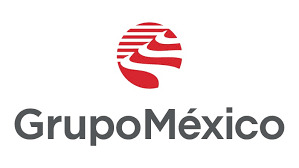Grupo México Makes Renewed Bid for Citi’s Banamex — A Confident Step Toward Strengthening Mexico’s Banking Future
Mining and transport giant Grupo México has returned with a renewed bid to acquire Citi’s Banamex, signaling strong confidence in Mexico’s financial sector and renewed optimism for domestic growth and investment.
In a move that reflects renewed confidence in Mexico’s economy and its financial institutions, mining and transportation conglomerate Grupo México has made a fresh offer to purchase Citi’s retail arm Banamex, reigniting hopes for one of the most significant banking transactions in recent years.
The offer, submitted on Friday, comes more than two years after Grupo México previously withdrew from talks, marking a major comeback for one of the country’s most influential business groups. The bid highlights what the company described as its “unwavering confidence” in Mexico’s financial future, emphasizing its vision to restore Banamex as a competitive, modern, and locally driven banking powerhouse.
Grupo México, controlled by billionaire Germán Larrea, is one of Latin America’s largest diversified companies with major interests in mining, rail transport, and infrastructure. In a statement, the company said its new proposal reflects both its long-term commitment to Mexico and its belief in Banamex’s potential to grow as a strong domestic institution serving millions of customers.
A Renewed Offer of Confidence
According to Grupo México’s filing, the offer values 25% of Banamex at 0.85 times book value, while the remaining 75% is proposed at 0.80 times book value. Citi originally purchased Banamex in 2001 for $12.5 billion, and the U.S. bank has been exploring various options to divest the unit since 2022 as part of its global restructuring.
While Citi said it had not yet received the formal offer, it reaffirmed its commitment to “realizing the full value of Banamex” for shareholders. Citi’s current preferred plan involves selling 25% of the bank to Mexican billionaire Fernando Chico Pardo, followed by a public listing (IPO) for the remaining shares.
However, Grupo México’s renewed bid offers an alternative — one that could streamline the transaction and eliminate the need for a separate IPO. The company also indicated openness to Chico Pardo retaining his 25% stake, signaling a cooperative approach that could attract additional Mexican investors and pension funds in the future.
A New Chapter After Previous Setbacks
This latest proposal marks a fresh beginning for negotiations that once stumbled under political tension. In 2023, talks between Grupo México and Citi collapsed following disagreements with then-President Andrés Manuel López Obrador, who had insisted that Banamex remain in Mexican hands and that the deal not result in layoffs.
The landscape has since shifted under President Claudia Sheinbaum, whose administration has taken a more investor-friendly tone while maintaining a commitment to national interests. Chico Pardo confirmed last week that Sheinbaum had not placed any restrictive conditions on his partial acquisition, signaling a more flexible regulatory environment for strategic deals.
Grupo México, in its filing, underscored that protecting Banamex’s workforce would remain a priority, reassuring both regulators and the public that the deal would strengthen — not disrupt — employment stability. “Our goal is to revitalize Banamex and preserve its historic role in Mexico’s financial life,” the company said.
Strengthening Mexico’s Financial Sovereignty
Banamex, founded in 1884, has long been a symbol of Mexico’s banking tradition. A successful acquisition by Grupo México would mark a significant moment for national financial sovereignty — bringing one of Mexico’s oldest banks fully back into domestic ownership.
Analysts say the bid underscores growing investor confidence in Mexico’s macroeconomic outlook. With inflation stabilizing and foreign investment flowing into the country’s manufacturing and energy sectors, a major banking deal of this scale could further solidify Mexico’s image as a stable hub for capital and innovation.
Financial observers note that Grupo México’s involvement could infuse Banamex with fresh resources and management expertise drawn from its vast industrial and infrastructure operations. “This deal is not just about banking — it’s about rebuilding trust in Mexico’s ability to lead its own financial destiny,” said one senior analyst at a Mexico City brokerage.
A Strategic and Nationally Symbolic Move
The renewed offer has been widely interpreted as a strategic effort to strengthen Mexico’s financial independence while fostering domestic economic growth. It also reflects Larrea’s broader vision of national development, aligning with his previous investments in rail, energy, and sustainable mining.
If successful, the transaction would create one of the largest locally controlled banking groups in Latin America. Grupo México has also suggested that other Mexican pension funds and investors could participate in future capital expansions, ensuring Banamex remains firmly under Mexican stewardship.
Citi, in response, maintained that it would “review any formal proposal responsibly” and evaluate factors such as regulatory approval and transaction certainty. The U.S. bank reiterated that it remains open to options that deliver long-term value for shareholders while maintaining transparency with regulators.
As Mexico positions itself for a new era of economic growth, Grupo México’s renewed interest in Banamex sends a clear signal of confidence in the nation’s potential. The bid, if accepted, would not only reshape the country’s banking landscape but also restore a sense of ownership and pride in one of its most iconic financial institutions.
With President Sheinbaum’s administration signaling a pragmatic approach to major corporate transactions, the timing may finally favor an agreement that balances investor ambition with national interest.
From the mining fields of Sonora to the trading floors of Mexico City, Grupo México’s resurgence in the financial sector is being viewed as more than a corporate maneuver — it is a statement of belief in the strength, stability, and promise of Mexico’s future.



